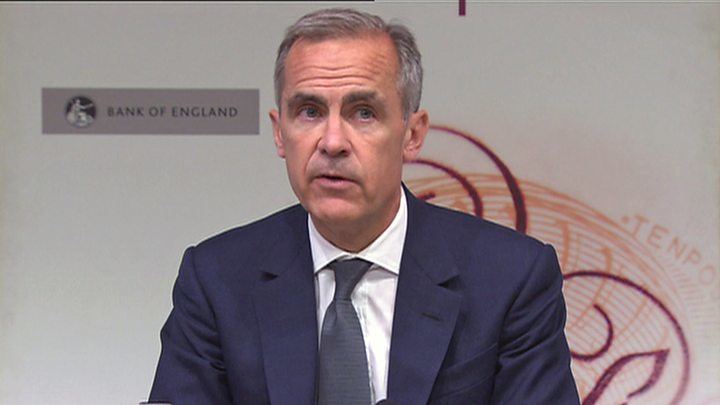We can do without Chinese whispers on the impact of Brexit

There was a time when few could even name the Governor of the Bank of England, let alone recognise him from off the telly. Those were the good old days when discretion was the byword and the authority of the position was such that the mere raising of the Governor’s eyebrows was enough to send a signal. Fast forward to now and Mark Carney is everywhere, apparently throwing his weight behind apocalyptic warnings about the economic risks of a ‘no deal’ Brexit.
The latest example is the headlines in Friday’s papers following the Governor’s latest briefing to Cabinet. He reportedly said that house prices would ‘crash by a third’ within three years of a chaotic Brexit, prompted by spiralling mortgage interest rates. That in turn has prompted a predictable backlash from politicians and commentators, with many questioning the Governor’s judgement and independence.
Nonetheless, I’m not going to join the Carney bashers (at least on this occasion). It has since emerged that the house price forecasts were based on a worst-worst case scenario, even worse than those in the infamous Cross-Whitehall briefing. Indeed, this was the Bank’s generic disaster scenario for stress testing, rather than any Brexit-specific analysis. (Some of us suspected this immediately, but it appears to have been confirmed following some smart detective work by Sky’s Economics Editor, Ed Conway.)
Assuming this is true, the Governor wasn’t trying to take sides. More likely, he was using the stress-testing scenario to show that the financial system could weather even a far bigger shock than the Brexit pessimists are predicting. The mistake of confusing stress-testing scenarios with forecasts has also been made before: an interview Carney gave to BBC Radio 4’s Today Programme in August led to the same confusion, even down to exactly the same projections for house prices!
Of course, Carney can’t be absolved completely. He must know his comments here are likely to be taken out of context, especially given the same thing happened only last month. But there cannot be many public servants who don’t have war stories of how their analysis has been misrepresented and misused by politicians and advisers with an agenda of their own.
This is where I suggest the blame should be focused. The briefing was supposed to be private and contained highly controversial (potentially market-sensitive) information, and yet someone leaked titbits to sympathetic journalists. I’ve no idea who. Perhaps it was a Brexiteer, keen to win back the youth vote with the promise that houses will finally become affordable again. But I suspect not.
Was there anything new or useful in the analysis? Again, I can only guess, given that it has not been published (just as the Government has yet to release any detailed analysis to back up the Cross-Whitehall briefing). But the media reports are consistent with two of the common flaws in many Project Fear stories.
The first is the assumption that UK policy-makers would choose to act in such a way that they would exacerbate the impact of any shock. Other examples here include assumptions that the Government would impose tariffs on imports from the EU, rather than lower on them on imports from the rest of the world, or impose restrictions on migration that compound skills shortages in key sectors.
This weakness certainly applied to the Treasury’s pre-referendum warnings of a sharp recession if the UK voted to leave the EU. Remember all the talk of a ‘punishment Budget’ and a surge in borrowing costs that the Bank of England would do nothing to prevent? In reality, of course, the opposite happened. Fiscal policy was loosened, interest rates cut and Quantitative Easing stepped up again.
The reports suggest the Governor has warned that it would now be harder to help the economy with monetary stimulus. But while official interest rates are much lower than they were ahead of the global financial crisis, they are actually a tad higher than before the EU referendum. More importantly, it is hard to see why the Bank would want to raise interest rates aggressively, driving up mortgage costs, as the doomsday scenario assumes.
The second common flaw in Project Fear stories is that they are only attacking a straw man. Friday’s headlines gave the impression (presumably deliberately) that the house price crash scenario holds in any form of ‘no deal’ Brexit, but it is only an extremely chaotic version. Like other worst-case scenarios, it appears to assume there will be no agreements at all, on anything, and that both sides would allow relations to break down more or less completely, despite their own economic interests and legal obligations.
I can’t imagine anyone wouldn’t think that any such scenario would be extremely damaging for the economy and society. However, it would be readily avoidable. It is therefore important to separate theoretical risks from likely reality, as the Institute for Economic Affairs is doing in our series of ‘no deal Fear Checkers’. Our latest publications also include a look at the impact of the Brexit vote on the economy so far, which is surely exaggerated too.
In summary, my own view is that the Governor does not deserve all the flak he is now receiving. But damaging games of Chinese whispers can be avoided if the first person keeps quiet, or at least is quick to correct the garbled versions that come from the more mischievous players.
The post We can do without Chinese whispers on the impact of Brexit appeared first on BrexitCentral.


Comments
Post a Comment